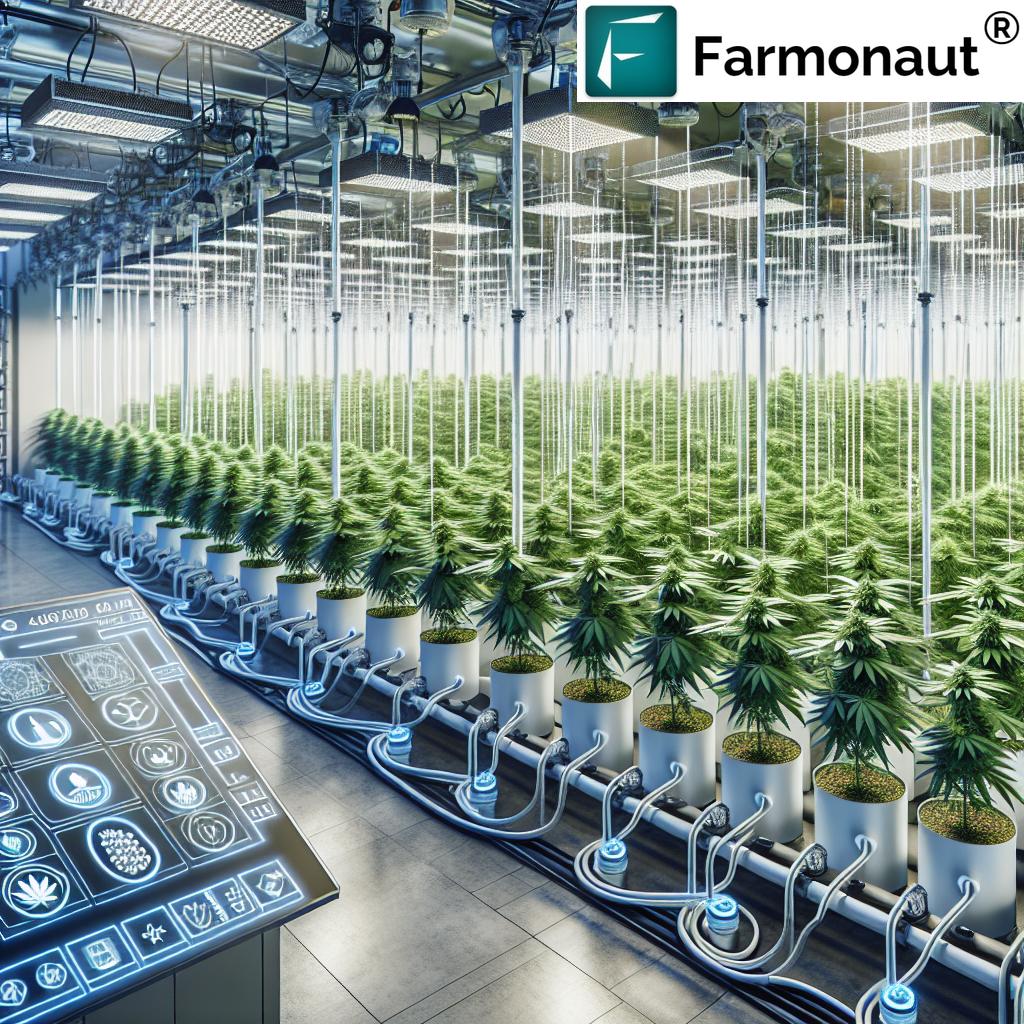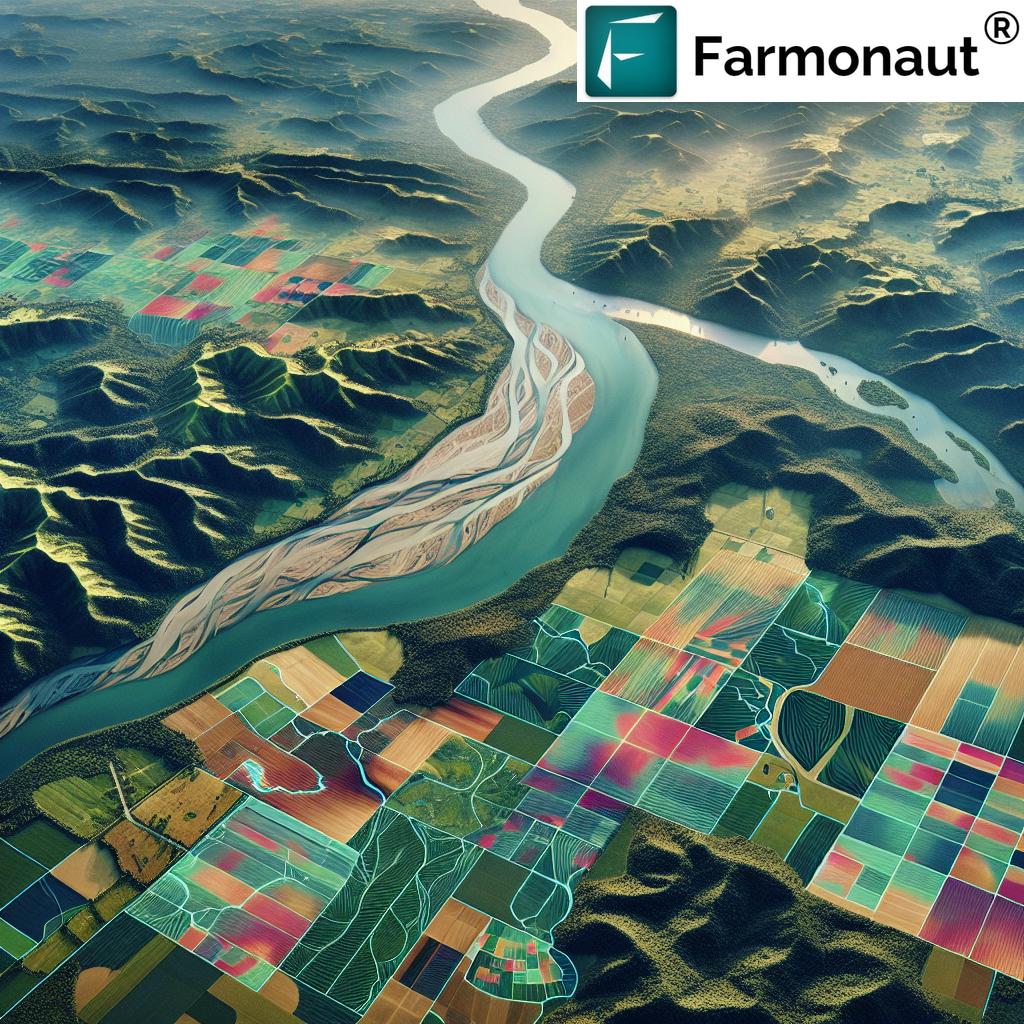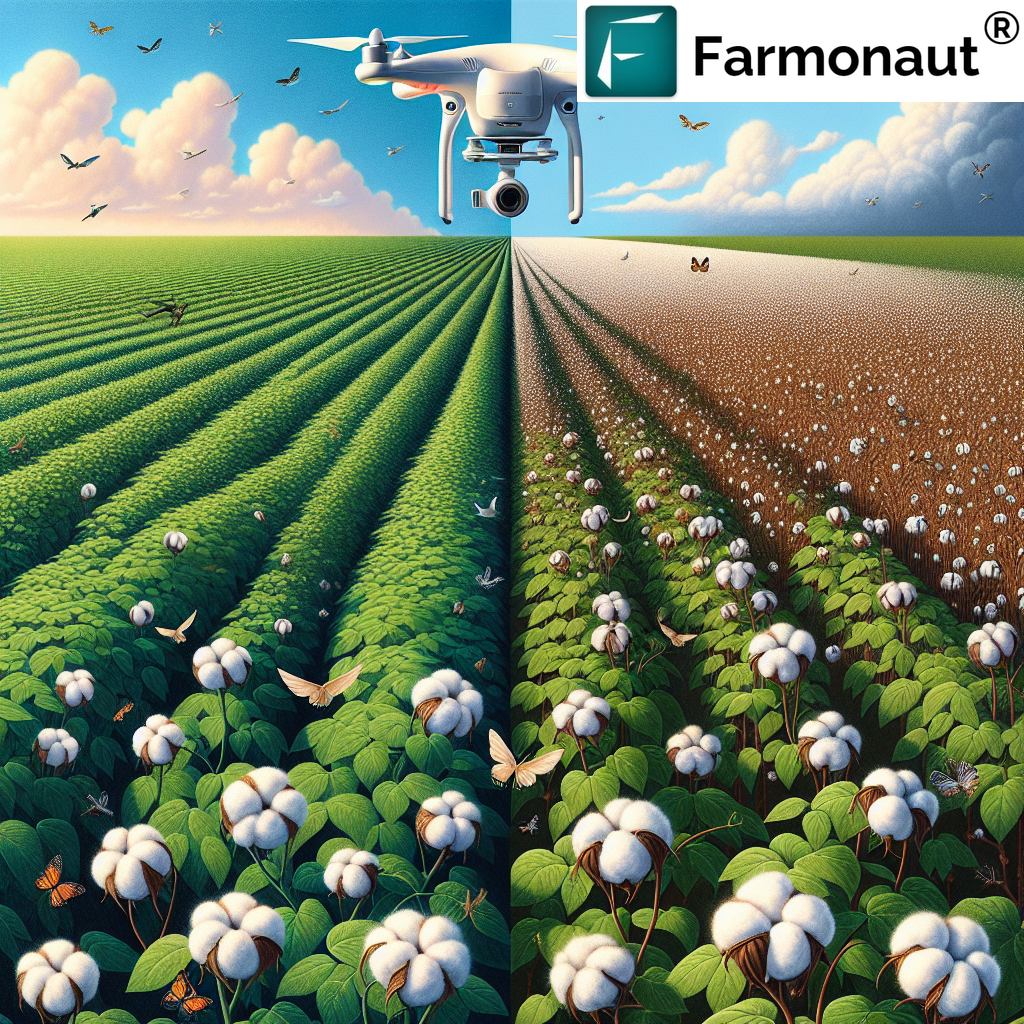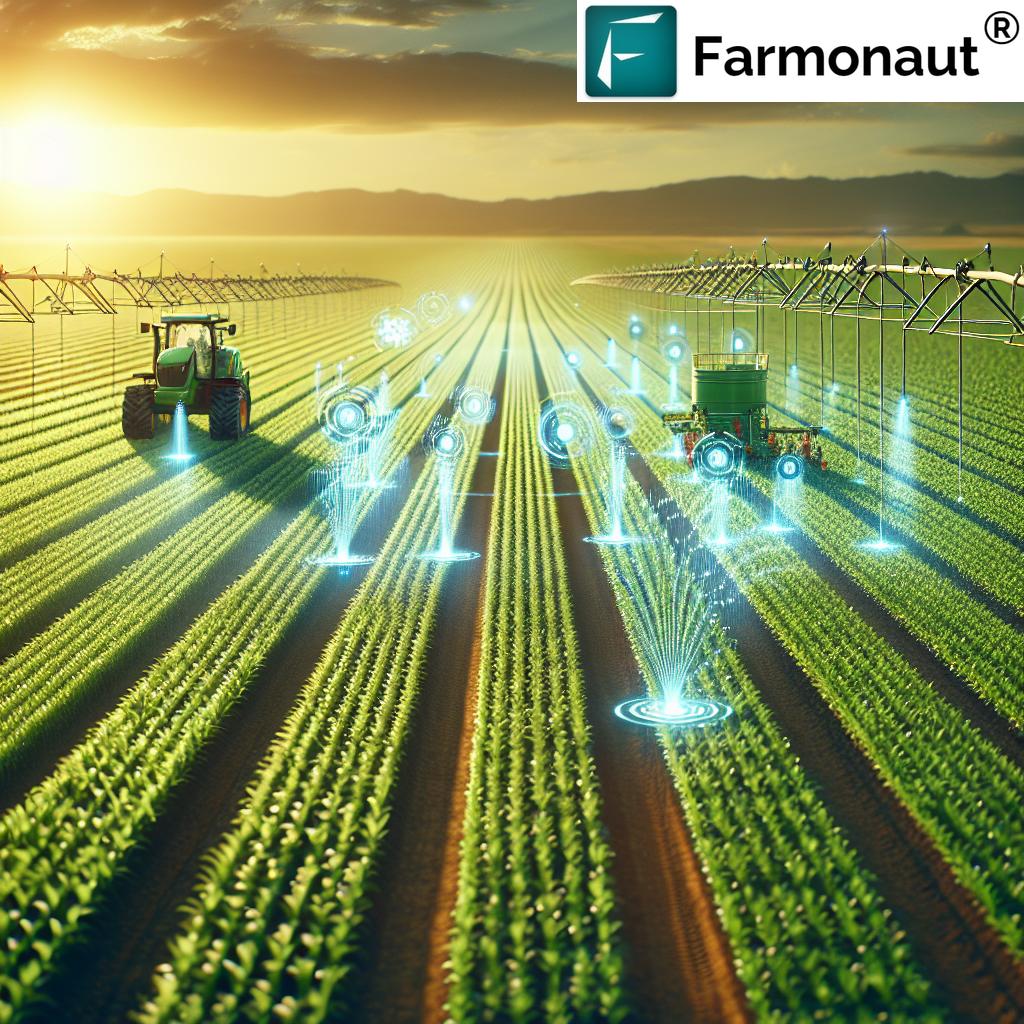Small Plot Agriculture Trials: Farming Plot Innovations in 2025
“Over 60% of new crop varieties in 2025 are tested using small plot agriculture trials before large-scale adoption.”
In 2025, small plot agriculture trials and plot farming stand at the forefront of agricultural innovation, driving sustainable progress, optimizing land use, and boosting efficiency for farmers and investors. As agriculture confronts unpredictable climates, intensifying resource demands, and a rapidly evolving landscape, these experimental trials remain vital for crop research, strategic land utilization, and the adoption of cutting-edge practices. In this comprehensive guide, we explore how small plot agriculture trials catalyze advances, how farming plots serve as dynamic hubs of research and production, and what opportunities await those looking to invest or innovate in the future of farming.
Table of Contents
- Introduction: The Rise & Relevance of Small Plot Agriculture Trials in 2025
- Why Small Plot Agriculture Trials Remain Vital: Core Benefits
- Plot Farming in 2025: Integrating Innovation & Sustainability
- Trial Designs & Techniques: Experimental Activities in Detail
- Agriculture Tech Advancements: Digital Tools, Drones, IoT & AI
- Comparative Analysis of Small Plot Agriculture Trials & Traditional Farming Methods
- Agriculture Plots for Sale: Investment & Expansion Opportunities in 2025
- Agriculture Field Trials: Bridging Research and Large-Scale Production
- How Farmonaut Empowers Modern Farming Plot Trials
- Sustainability, Climate Change, and the Future of Plot-Based Agriculture
- Frequently Asked Questions (FAQ)
- Conclusion: Optimizing Agriculture Through Trials and Innovation in 2025
Introduction: The Rise & Relevance of Small Plot Agriculture Trials in 2025
Small plot agriculture trials are rapidly transforming how we approach farming, research, and innovation in agriculture. As farming plots become more valuable resources in regions facing land scarcity, environmental pressures, and a demand for efficient production, these trials offer a realistic way to test, adapt, and perfect sustainable agriculture practices. Often ranging from just a few square meters to less than a hectare, these experimental plots deliver precise, actionable data crucial for real-world adoption.
Small plot agriculture trials are not only confined to elite research institutions; they permeate across developed and developing regions, empowering smallholder farmers, NGOs, agribusinesses, and even startups. The increasing integration of advanced technologies—AI tools, remote sensing satellites, drones, and IoT sensors— further elevates these experiments, making detailed data collection and analysis accessible to a wide audience.
From optimizing crop varieties, improving pest and disease management, pioneering climate-resilient methods, to supporting food security, small plot trials remain vital components of the modern agricultural landscape.
Why Small Plot Agriculture Trials Remain Vital: Core Benefits
In 2025, the significance of small plot agriculture trials lies in their ability to enable researchers and farmers to:
- Test new crop varieties—analyzing yield potential, stress tolerance, disease resistance, and market value on a manageable scale.
- Evaluate fertilizer formulations, soil amendments, pest, and weed control methods—safely and cost-effectively, without risking total production.
- Simulate diverse environmental conditions—such as drought, high rainfall, or pest outbreaks—to understand crop performance under climate variability.
- Generate precise, real-world data for decision-making, laying the foundation for large-scale adoption only after proven feasibility and economic impact.
- Support rapid innovation cycles by enabling multiple experimental activities—ranging from basic soil management to digital agtech solutions—across short timescales.
With increasing weather variability and climate change pressures, small plot trials allow the industry to quickly adapt farming strategies, optimize resource management, and maintain production efficiency.
Plot Farming in 2025: Integrating Innovation & Sustainability
Plot farming typically refers to the cultivation of crops on small, manageable parcels of land—which may be family-owned, leased units, or commercial demonstration areas. In 2025, this form of agriculture is rapidly gaining traction due to its:
- Flexibility: Plots can be rapidly reallocated or diversified to meet changing demands, introduce new crops, or integrate advanced technologies.
- Compatibility with sustainable practices: Intensive, diversified cropping systems help maintain soil health, reduce pest incidence, and support biodiversity.
- Support for smallholder development: In both developed and developing regions, plot farming serves as a gateway for smallholder farmers to participate in commercial agriculture, experiment with crop rotations, organic practices, or even agroforestry—combining perennial trees and annual crops for greater resilience.
For many, plot farming enables a transition from subsistence to profitable crop production, allowing for managed risk, efficient resource use, and the integration of eco-friendly innovation into everyday practices.
Trial Designs & Techniques: Experimental Activities in Detail
Small plot agriculture trials are typically structured to ensure scientific reliability and actionable outcomes. Here’s how these experimental activities are conducted:
Key Aspects of Small Plot Trial Designs
- Replicated Plots: Each treatment or crop variety is grown in several replicated segments, often ranging from a few square meters to less than a hectare in size, increasing data reliability.
- Randomized Allocation: By randomizing how each input or treatment is allocated, researchers control for soil variability and environmental differences across the trial field.
- Standardized Data Collection: Measured parameters may include yield, pest and disease incidence, water use, soil health indicators, and more—rounded out by visual scoring, sensor data, and even farmer observations.
- Controlled & Realistic Conditions: While environmental factors are closely monitored (e.g., using satellite-based farm management solutions), small plot trials strive to mimic real-world field conditions as much as possible, ensuring practical relevance when scaling up.
Typical Activities in Small Plot Trials
- Crop variety screening: Testing and comparing multiple seed lines to identify best performing genetics.
- Fertilizer and irrigation technique evaluations: Assessing different nutrient rates, organic amendments, and precise irrigation strategies for maximum yield and resource efficiency.
- Pest and disease control trials: Experimenting with biological controls, integrated pest management (IPM) approaches, and synthetic versus natural treatments.
- Climate mitigation studies: Subjecting plots to varying weather or stress scenarios to test climate-smart agriculture techniques.
By using these robust designs, agricultural research teams generate high-quality data and actionable recommendations that can be shared across regions, enabling diverse stakeholders to innovate rapidly and sustainably.
Agriculture Tech Advancements: Digital Tools, Drones, IoT & AI in Plot Trials
The digital revolution in agriculture is supercharging the effectiveness of small plot agriculture trials. In 2025, the following technologies are routinely incorporated into trial design and management:
- Remote Sensing & Drones: High-resolution satellite imagery and drone flyovers (as employed by solutions like Farmonaut’s large-scale field mapping tools) monitor crop growth, detect stress signals, and precisely measure performance data across experimental plots.
- IoT Soil & Climate Sensors: Connected sensors collect real-time data on soil moisture, nutrient levels, temperature, and microclimatic changes, enhancing trial accuracy and interpretation. These data streams are crucial for refining inputs and understanding environmental variation.
- AI and Machine Learning: Predictive analytics and machine intelligence process complex datasets, recognizing performance trends, optimizing trial protocols, and supporting rapid decision-making.
- Blockchain for Trial Traceability: Secure digital ledgers ensure the integrity of research data and results—linking every stage of crop testing, from field experiments to supply chain validation. Learn more about this on our traceability solutions page.
- Carbon Footprint Measurement: Real-time tracking of greenhouse gas emissions and sequestration is increasingly integrated into plot management. Want to see how this works for your farm or R&D? Discover Farmonaut’s Carbon Footprinting solutions.
These digital advancements not only improve trial accuracy but also enhance sustainability and reduce the resource inputs needed in experimental agriculture.
Comparative Analysis of Small Plot Agriculture Trials & Traditional Farming Methods
To clarify the benefits—and practical differences—between small plot trials and conventional farming systems in 2025, we present the following SEO-optimized comparative table:
| Parameter | Small Plot Agriculture Trials | Traditional Farming | Innovation Benefits |
|---|---|---|---|
| Land Use Efficiency (Yield per square meter) | Up to 35% higher through optimized plot management and diversified cropping | Lower, variable (typically 15–20% less efficient) | Extracts maximum productivity from limited land; vital in space-constrained regions |
| Water Usage (L per kg yield) | 10–30% less, enabled by precision irrigation and soil moisture monitoring | Often higher, with potential for over/under-watering | Supports sustainability, resource conservation, and climate change adaptation |
| Yield per Hectare | Consistently higher for tested crop varieties (proven before scaling up) | Dependent on traditional practices and environmental conditions | Enables selection of best practices for commercial adoption |
| Technology Used | Remote sensing, drones, IoT, AI, blockchain, data analytics | Manual observation and legacy tools | Delivers precise, actionable data and enables digital agriculture innovation |
| Sustainability Impact | Promotes regenerative, climate-smart, and carbon-efficient practices | Variable; often not tailored to sustainability goals | Accelerates transition to climate-friendly agriculture systems |
| Cost Efficiency | Lower trial costs, reduced input risk, scalable after validation | Higher risk of large-scale loss, inefficient use of resources | Enables informed investment and risk reduction for farmers and stakeholders |
This comparative table underscores why plot-based innovation is essential for sustainable, efficient farming practices in an evolving global food system.
Agriculture Plots for Sale: Investment & Expansion Opportunities in 2025
The agriculture plot for sale market is projected to expand in 2025 and beyond—fuelled by surging interest in:
- Food security-driven land investments: Urban and peri-urban farming plots for fresh, local crop supply
- Bioenergy & carbon projects: Land parcels utilized for energy crops or carbon sequestration with environmental incentives
- Sustainable value chain: Plots with strong resource access (water, infrastructure) and potential for upgrading with smart farming solutions
- Technology incubation: Areas leased by agritech startups to conduct field experiments, proof-of-concept trials, or demonstrate new digital tools before broader rollout
When considering an agriculture plot for sale, investors and farmers should evaluate:
- Soil health, fertility, and topography
- Water rights and access
- Existing on-plot infrastructure and proximity to markets
- Potential for digital upgrade (e.g. remote satellite monitoring or precision farming integration)
For those seeking additional resource management and monitoring, our fleet management services provide scalable solutions for optimizing logistics across multiple plots or widely dispersed agricultural parcels.
Smart investment in plots—backed by Farmonaut’s plantation and advisory platform—can open new opportunities for climate adaptation, regenerative farming, and enhanced traceability in modern supply chains.
Agriculture Field Trials: Bridging Research and Large-Scale Production
Agriculture field trials serve as the backbone of agricultural research, testing everything from crop varieties to fertilizer application and pest management practices before large-scale deployment. By systematically replicating trials across regions, the agricultural sector can validate:
- Improved crop genetics: Stress resilience, drought and disease resistance, and enhanced nutritional traits for global food security.
- Input optimization: Resource-efficient combinations of fertilizers, irrigation, and pest control methods.
- Ecosystem integration: Field trials increasingly incorporate socio-economic analyses, ecological footprint, and economic feasibility to ensure sustainable outcomes.
With digital platforms now mainstream, analysts leverage AI and machine learning to parse complex, multi-location datasets, revealing best practices for rapid scale up and ensuring transparency for investors, regulatory bodies, and value chain stakeholders.
For large estates, contract farms, or government demonstration plots, Farmonaut’s large-scale management platform supports both trial planning and satellite-verified progress tracking. For crop insurance and loan validation, use Farmonaut’s crop loan and insurance verification service for secure, data-backed compliance.
How Farmonaut Empowers Modern Farming Plot Trials
At Farmonaut, we envision an inclusive, sustainable, and data-driven future for agriculture—where small plot agriculture trials and field innovation are accessible to every farmer, research institute, and investor worldwide. Our solutions bridge traditional knowledge with the latest digital advances:
- Satellite-Based Crop Health Monitoring: We leverage multispectral remote sensing for real-time insight into plot vegetation and soil conditions, supporting efficient nutrient and pest management.
- AI-Driven Advisory Systems (Jeevn AI): Our platform delivers personalized, actionable advice on weather, irrigation, fertilizer applications, and resource management to optimize small plot trials and field operations.
- Blockchain Traceability: We empower farmers and supply chains to verify the journey from experimental field to final consumer using secure blockchain records.
- Fleet and Resource Management: Managing scattered or leased plots? Our tools integrate route optimization and equipment logistics, maximizing operational efficiency for diverse plot networks.
- Carbon Footprinting: For those qualifying for green finance or seeking to document environmental impact, our platform tracks GHG emissions and sequestration at the plot level in real time.
Our flexible, subscription-based model is available via Android and iOS apps, Web portal, and industry-ready API endpoints. Developers are invited to explore our API documentation for custom integration.
For enterprises and researchers requiring multi-hectare management, our large-scale farm management solutions deliver robust oversight from trial planning to real-time performance tracking.
Sustainability, Climate Change, and the Future of Plot-Based Agriculture
The unique power of small plot agriculture trials and plot farming lies in their ability to generate innovation while strengthening the resilience and sustainability of global agriculture. As climate change continues to intensify, we must invest in carbon-efficient farming systems, close the loop on resource cycles, and redesign agriculture to be adaptive and responsive at every scale.
Key Trends for 2025 and Beyond
- Increase in collaborative digital field trials—as more stakeholders (from NGOs to agribusinesses) leverage shared data platforms and remote sensing.
- Integration of carbon-footprinting and sustainability metrics into mainstream agricultural research and reporting (see Farmonaut solutions).
- Broader opportunities for smallholder participation in technology evaluation and market-driven innovation, reducing the digital divide.
- Greater emphasis on diversification: Experimenting with crop rotations, intercropping, and agroforestry systems within small plots to enhance ecosystem health and food security.
With the right support and access to innovation, farmers and investors can unlock new strategies for resource management, food system resilience, and environmental stewardship across agricultural plots.
Frequently Asked Questions (FAQ): Small Plot Agriculture Trials & Plot Farming in 2025
What are small plot agriculture trials?
Small plot agriculture trials are experimental activities in which crops, fertilizers, irrigation techniques, or pest management solutions are tested on plots ranging from a few square meters to less than a hectare. They are designed to generate precise data under realistic but controlled conditions before large-scale adoption.
How do small plot trials support sustainable farming?
By allowing rapid testing of sustainable practices such as integrated pest management, crop rotation, and climate-resilient varieties on a manageable scale, small plot trials help identify solutions that reduce environmental impact, conserve resources, and enhance long-term productivity.
What technologies are used in modern plot trials?
In 2025, advanced digital tools such as remote sensing satellites, drones, IoT sensors, AI-powered data analytics, blockchain traceability, and carbon footprinting are commonly integrated to boost trial accuracy and efficiency.
Who benefits from plot farming and field trials?
Plot farming and field trials benefit farmers (especially smallholders), agribusinesses, research organizations, government agencies, investors, and the broader food supply chain by reducing risk, enabling innovation, and supporting optimized land utilization.
How do I access Farmonaut’s precision agriculture tools?
You can access our suite of crop health monitoring, advisory, and traceability solutions via the web app, the Android app, or the iOS app. For integration into enterprise platforms, our API and developer documentation are available.
Are small plot trials relevant for commercial-scale agriculture?
Absolutely. Small plot trials provide the data backbone for scaling up successful innovations to large commercial farms, reducing risk and ensuring that new varieties or methods are proven before investment in widespread adoption.
Conclusion: Optimizing Agriculture Through Trials and Innovation in 2025
Small plot agriculture trials, plot farming, and systematic agriculture field trials remain vital components of an evolving and sustainable agricultural landscape—enabling rapid adaptation to climate change, resource pressures, and food security challenges. Supported by digital technologies, renewable innovations, and real-time data, these approaches empower farmers, investors, and researchers to optimize land use, maximize production efficiency, and drive environmental stewardship in the 2025 era.
To lead in this rapidly transforming sector, leverage modern trial methodologies and advanced digital platforms—such as ours at Farmonaut—to realize the full value of your farming plot investments, research programs, and sustainability targets. By integrating precision, technology, and field-level experimentation, the future of agriculture is not only productive and efficient but fundamentally resilient and sustainable.















